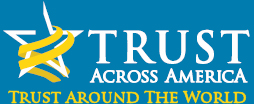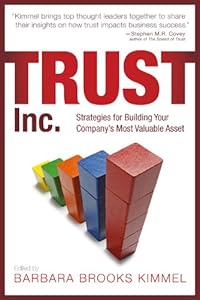INTERVIEW WITH MICHAEL HOPKINS FOUNDER OF MHCi
Barbara Kimmel: Michael – tell us a bit about your background, qualifications and expertise. If you have written a book, please provide the title.
Michael Hopkins: My main aim in life is to promote the issue of corporate social responsibility for peoples, communities, companies, countries, governments and NGOs around the world. I help to accomplish this as a teacher (University of Geneva Graduate Courses on CSR www.corporateresponsibility.ch and through my company www.csrfi.com); as a researcher through research and advisory services with a strong focus on creating employment strategies through MHC International Ltd. (MHCi: London, Washington DC & Geneva); and as the author of thirteen books of which the last two: The Planetary Bargain:CSR Matters (Routledge 2003) traces the history of CSR and proposes a framework; and CSR and International Development (Routledge, 2007).
I have also worked on developing and evaluating human resources and labour market issues in over 120 countries around the world, inter alia, Colombia, Brazil, Cote d’Ivoire, Tunisia, Morocco, Egypt, Jordan, Qatar, Dubai, South Africa, Malaysia, China, India, Philippines, Vietnam, Portugal, and Azerbaijan. I blog with CSRwire and in MHCi’s regular monthly features which are now in their 12th year. I am currently working, interalia, with my sister-in-law, the just appointed Deputy Prime Minister of Somalia, to promote trust and development in Somalia…it will work just wait and see!
Barbara Kimmel: Trust Across America’s mission is to rebuild trustworthy business behavior across the globe. How would you generally define trustworthy business behavior?
Michael Hopkins: Trustworthy business behavior means treating the key stakeholders of a company or institution ethically or in a responsible manner, which I equate with Corporate Social Responsibility (CSR). ‘Ethically or responsible’ means treating key stakeholders in a manner deemed acceptable according to international norms. Social includes economic and environmental responsibility. Stakeholders exist both within a firm and outside. In fact acting responsibly toward your stakeholders is obviously good for business and so there should not be special tasks. However, the financial crisis, the fall of Enron, the pyramid scheme of Madoff etc. indicated that companies need to be persuaded either by vigorous NGO activity or by new forms of legislation.
Barbara Kimmel: In your opinion, what are some of the specific components of trustworthy business behavior?
Michael Hopkins: Being British, I am often challenged by our colonial past and am not impressed by many of my forbearer’s ruthlessness and scant regard for indigenous peoples. Yet curiously, my country is known for fair play and, in business, that a gentleman’s honour is his handshake – note rarely she, maybe not needed? We men can learn. I am told these days that nothing is now done without a written contract and I have also been often disappointed with the lack of respect of verbal agreements. Now, more and more, the old joke rings true and that is why does the sun never set on the British Empire? Because you cant trust ‘em after dark. I wish this to become less and less true and why I greatly support the notion of trust, and Trust across America with the hope that the movement becomes ‘Trust Across the World’.
Barbara Kimmel: We all know that the erosion of corporate trust is a big problem. What are companies doing to combat this, and is it enough?
Michael Hopkins: Today just about 90% of large corporations produce social or sustainability or CSR or corporate citizenship reports since they are well aware that reputation can be lost in a heartbeat. Many add that all these reports are simply green or white washing and, of course, there is some truth in that. However, imagine a company of more than 100,000 people and then note how difficult it is to keep your own close family of, say, 10-15 people to agree to work together for the good of the whole family. In a large company it is, of course, incredibly difficult to get everyone following best trustworthy practice. Even if the CEO is trustworthy and swears by social responsibility at events such as Davos, down the chain of command to the operational level all sorts of shortcuts are taken to improve the bottom line. Then imagine how difficult it is to convince employees that it is not the pursuit of profits at any cost that is good for you and the company but how profits are made.
Barbara Kimmel: Is the global “trust” climate improving or worsening? What actions will turn things around?
Michael Hopkins: I am forever an optimist especially since hard numbers for whether the global climate is improving or worsening are hard to find. Globescan does an annual report on trends in Sustainability as does Price Waterhouse and both give optimistic figures on progress on such things as climate change, democracy around the world etc. The one global figure I often use is life expectancy, which is improving right across the world even in dear old USA, which is a laggard in some respects but has shown improvements. You can’t live long without such hard to measure issues as trust and level of living. The recent resignation of Hillary Clinton was notable for the review of her work (nothing major accomplished gloat the press) and yet her final remark rings true: “Although we weren’t able to shatter that highest, hardest glass ceiling this time, it’s got about 18 million cracks in it.” So what actions will turn things around assuming they need to be turned around is simply that – the millions of kindnesses and measures of respect one finds right across the world.
Barbara Kimmel: Can you provide a few examples of companies that are doing the “right” thing in your opinion? What steps are being taken by these companies that sets them apart?
Michael Hopkins: I am asked this a lot and my response is often the same and that is it is simply hard to pronounce since to use a cliché ‘one swallow does not a summer make’. For instance, the oft-praised Nike has worked hard to achieve decent labor practices across its supply chain. Yet Nike does not produce anything itself, all is from sub-contracted suppliers. Thus poor labor practices can surface in remote locations that Nike didn’t even know worked for it. It has suffered on this count but has vigorously addressed labor issues right across its supply chain. I am also impressed by the small group at the US Chamber of Commerce who pursue corporate citizenship, albeit imperfectly, but I am glad my former young associate accepted my mentoring and is now documenting with Google and Microsoft the many splendid things that companies are doing to improve development right across the world and yes, I’ll mention her name, Taryn Bird.
Defining what is meant by ‘best’ is also not easy, for instance it may surprise readers but there is no objective way in which to set a ‘living wage’ despite demands for many to do so. The ILO’s labor policies have recently been augmented by a pressing concern for ‘decent work’- laudable in theory but almost impossible to define.
Barbara Kimmel: Anything else you would like to add as a closing comment?
Michael Hopkins: One can find trust right across the world. I have been lucky to have lived and worked in over 120 countries. In any of these countries, 99% of the people are wonderful yet so few give the rest a bad name. Don’t be fooled! I look out of the window as I write here in Nairobi and see bustling and extremely friendly activity from smiling, friendly and trustworthy Kenyans. Yet, before setting foot in the country I am warned against sporadic violence, armed robbery, kidnapping, gang warfare etc. which of course exists prompted by appallingly bad distribution of income and wealth. All countries must be extremely careful not to fall into the Orwellian trap of the few having a lot and the many with little or nothing – please watch out America!
Barbara Kimmel: Michael, you have had a truly outstanding career. Thank you for sharing your thoughts with us.
Michael Hopkins can be contacted at: mjdhopkins@mhcinternational.com
Do you have questions or comments? Email Barbara@trustacrossamerica.com



Recent Comments